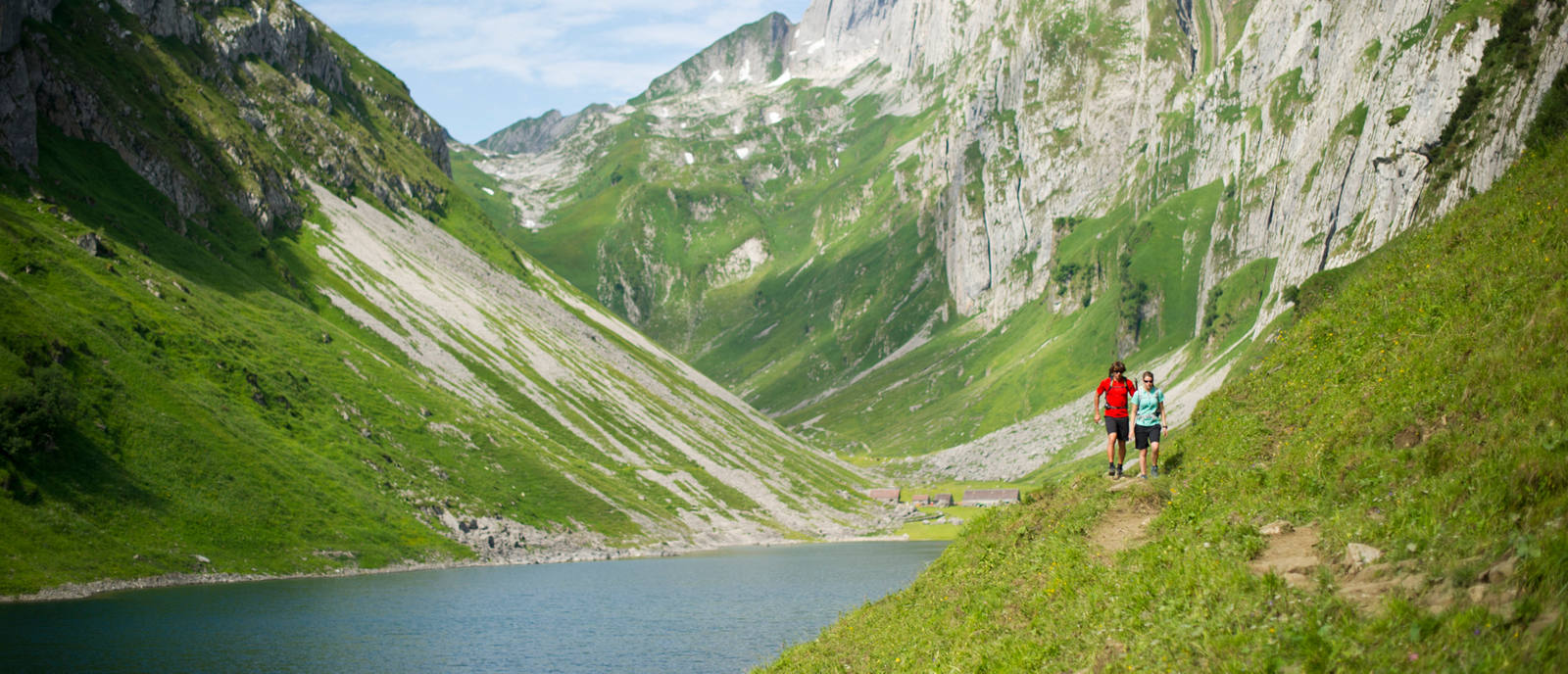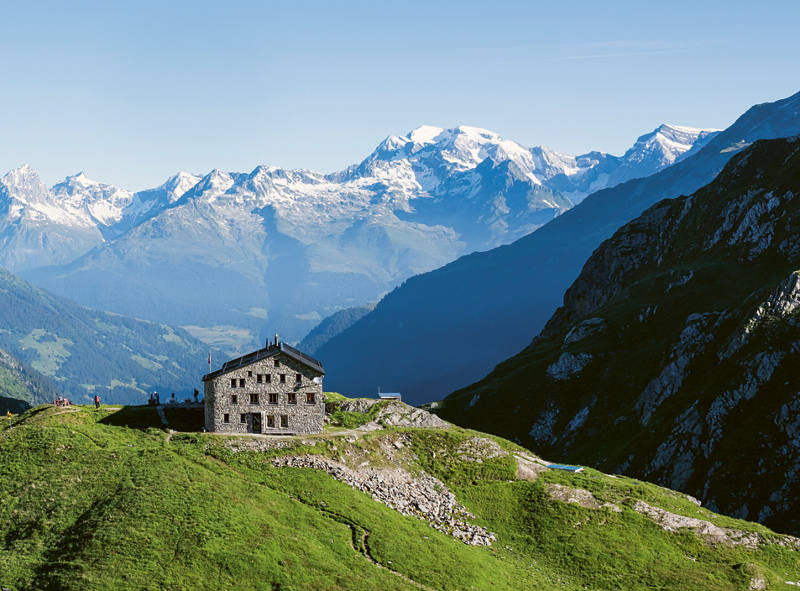Hiking safely in the mountains

It happens time and time again that people find themselves in an emergency situation on a hike. Good preparation is therefore particularly important for staying safe in the mountains.
Emergency in the mountains
It was a stormy night in Val Bavona in Ticino. It had been raining for hours, and the ground was soaked and slippery. When Alberto Corti, hut keeper at Capanna Piano delle Creste , heard a knocking at the door in the middle of the night, he was quite surprised: a hiker, completely drenched who’d lost his original way and come across the hut, with no more than his mobile phone as a source of light.
Statistics confirm – countless mountain rescues are required
The hiker was extremely lucky. According to statistics from the Swiss Alpine Club SAC, over 2,700 people in the Swiss Alps and Jura found themselves in distress in 2017 and had to be rescued or recovered by mountain rescue services. In traditional mountain sports, 103 people were involved in fatal accidents, with falls or plunges being the most common cause of death.
What you need to note to hike safely
Careful planning before a hike is key to staying safe. The following aspects should be considered:
- How challenging is the hike?
Accurate self-assessment helps prevent hikers running into danger. Signposts on hiking trails also provide additional help and show the difficulty level of the routes. - What are the current conditions?
The weather can change faster in the mountains than in the lowlands. Follow the weather’s progress closely. - What kind of equipment do I need?
Besides the right clothing (wind, cold and rain protection), you will also need provisions and drinks. Sun protection as well as a small first-aid kit, maps and a headlamp can also be packed, as required. - How much time will I need?
Plan enough time for your hike. If you're hiking alone, inform friends or acquaintances about your route and schedule.
Stay on marked trails
When hiking, it's important to always stay on marked trails or given paths. On paths that are exposed, even a moment’s inattention can lead to a fall. Older hikers also have slower reactions and even a small stumble can have fatal consequences. If in doubt, it's always better to turn around and return than to put yourself in danger.
Prepare for emergencies
Safety first when hiking. However, should you still find yourself in an emergency situation, it's important to keep calm. Assess the situation, provide first aid if necessary and call Rega on 1414.


